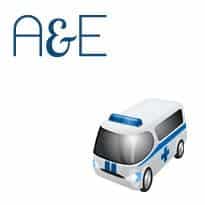The College of Emergency Medicine wants clinical commissioners to use their buying power to improve the quality of discharge summaries produced by emergency departments.
The CEM produced a template of good practice in 2010 based on its minimum data set for emergency (A&E) departments. However, it admits take-up has been patchy.
Dr Taj Hassan, an emergency medicine consultant at Leeds Teaching Hospitals NHS Trust and vice-president of the CEM, told EHI Primary Care: “There are islands of excellence but what we want to do is spread those out elsewhere.”
Dr Hassan was responding to concerns raised by Dr Mary Hawking, a GP in Bedfordshire, who has argued that many reports produced by emergency departments are unfit for purpose and constitute a patient safety risk.
Dr Hassan said high quality discharge summaries were one of the key components of integrated emergency care outlined in the college’s strategy document published late last year.
The CEM now plans to publish a shorter guide for commissioners in the next few months and hold a workshop in the autumn followed by a national meeting next year. He said: “This is something which is really important to GPs and important to us.”
The DH said in a statement: "We are currently in discussion with the College of Emergency Medicine about the introduction of national standards that will help deliver timely, high quality information to GPs.
"We will continue to encourage all healthcare professionals to work closer together and share information effectively so that patients can benefit from better integrated care."
Dr Hawking told EHI Primary Care that she has now reported her concerns about the discharge information generated by emergency departments to the National Patient Safety Agency as she believes it constitutes a patient safety risk.
She added that she remains unclear about whether the poor quality of information received by GPs is mainly the result of the IT systems used by emergency departments, the lack of information available, or the low priority attached to providing data to GPs.
The story published by EHI Primary Care last week, highlighting her concerns, attracted more than 40 comments and a lively debate on where the problems lie and how they can be addressed.
However, Dr Hawking added: “The only progress I have made so far is in raising the profile of the problem.”
The CEM said discharge summaries based on its template are produced in Leeds and Oxfordshire but elsewhere it said the information is not good and is not transmitted in a consistent way.
One of its initiatives has been to define a Unified Diagnostic Dataset with the aim of enabling consistent coding that is easy for IT system providers to implement.
Dr Hawking has also highlighted the issue on her Facebook page and has raised the problems her own practice faces with her local clinical commissioning group.

